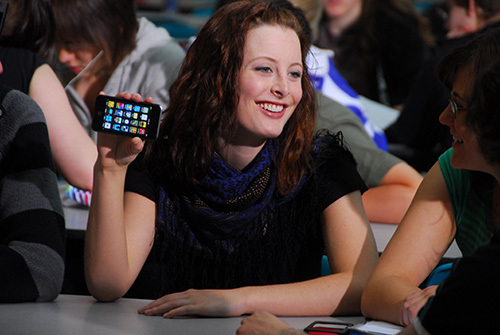
Honorable Jeff Johnson, Ministre de l'Éducation de l'Alberta, talked to me last November about his experience as co-chair of the province’s pioneering “L'éducation inspirante” initiative. The question posed by his steering committee to all Albertans was: Quels types de compétences et les qualités d'un diplôme devrait Albertain éduqué dans 2030 avoir? The response, which became the inspiration for education reform in Alberta, was that students needed to be three things: penseurs engagés, citoyens éthiques, et ils avaient besoin d'avoir l'esprit d'entreprise. What role has technology played in helping educators achieve these goals? I decided it was time to invite Jeff back to La recherche globale pour l'éducation series to give us an update.
Prior to his position as Minister of Education for Alberta, Honourable Jeff Johnson was Minister of Infrastructure, Le ministre responsable du Secrétariat des sables bitumineux, et adjoint parlementaire du Conseil du Trésor. Jeff a également une expérience de travail sur les marchés financiers comme un plancher commercial à terme patron de mine et la construction d'une série de petites entreprises prospères.
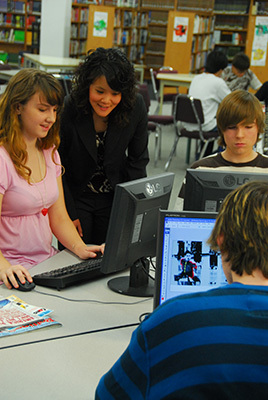
How has technology impacted the Alberta education system? Qu'est-ce que les éducateurs voient que les avantages et les inconvénients du point de vue de l'apprentissage?
Advances in technology have had a big impact on the world and, Par conséquent, a big impact on our education system as well. Kids today grow up in a world where they have information at their fingertips and education has had to adjust to meet the needs of those students. This is both a challenge and an opportunity for Alberta’s educators.
When we talked with Albertans during the L'éducation inspirante dialogue, one of the main topics of discussion was technology. Albertans told us that we needed to shift from using technology to support teaching to using technology to support the creation and the sharing of knowledge. A part of that is the development of competencies. We are currently shifting Alberta’s curriculum towards competency-based learning. That means that instead of memorizing facts, kids today are learning skills. Par exemple, they are learning how to use knowledge to tell fact from fiction online. This is crucial in an age of Wikipedia – kids need to know how to tell if information is credible, a skill that will be important for their entire lives.
The impact of technology on teaching has also been significant. Teachers today use smart boards, so kids can interact with their lessons. They use digital cameras and laptops, so kids can shoot video and make presentations. And technology allows teachers to tailor lessons to an inclusive environment – providing visual cues for someone with a hearing impairment, par exemple, or tailoring lessons for children with autism.
Comment le rôle de l'enseignant est en train de changer à l'ère numérique?
Access to technology and information has forced teachers to think differently about how they plan for learning. Teachers not only have to be users of technology and digital resources, but they have to be keenly aware that students need to understand that information in a digital age needs to be validated. Teachers need to shift their thinking from a single answer or source of information to accommodating multiple ways of getting to the answer using a variety of sources of information. It permits students to engage in new knowledge creation in ways that have never been possible before. Teachers are now more accessible to parents than they have ever been in the past, which is also a different paradigm for teachers.
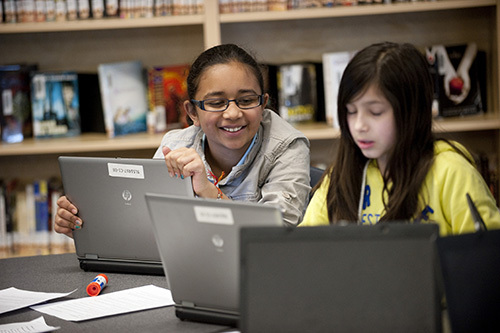
Etats entiers aux États-Unis ont adopté des manuels numériques. Les bibliothèques universitaires sont de plus en référentiels de contenu numérique. Beaucoup diront manuels ont déjà passés au numérique et en effet la prochaine génération de contenu numérique ne est pas loin derrière. What digital learning tools have been implemented in Alberta classrooms and what do educators see as the pros and cons of these?
School authorities are becoming increasingly interested in incorporating technology and digital resources into their classrooms. Through LearnAlberta.ca, Alberta Education has been providing online access to education materials since 2001. This site is host to approximately 8,500 Ressources. Materials include teaching and learning resources (some in the form of interactive applets and engaging software) that are directly correlated to programs of study, as well as reference materials, and access to online programs of study and assessment materials. LearnAlberta.ca has seen an increase in the use of digital materials for teachers and students following the Alberta programs of study.
En outre, five Alberta school boards are piloting the development of a Collaborative Online Resource Environment (CORE), accessible at http://www.albertacore.ca, to collaboratively acquire, développer, store, manage, and share digital classroom resources for anytime, apprentissage partout. À ce jour, students and teachers enjoy shared access over a common infrastructure to over 165,000 digital resources. Users can contribute resources they find of value, and can comment on effective ways they have used these in learning environments. The University of Calgary is conducting formal research on this innovative project.
In Alberta, school authorities have maximum flexibility to determine what kinds of resources they will make available to their students, and what policies they will put in place to guide the use of these resources. Teachers determine for themselves what level of technology use is most appropriate to meet the needs of their students. Whatever resources teachers and school authorities select, equity of access and support for inclusive classrooms will continue to be guiding priorities in those decisions.
Tablets have been found to be extremely helpful in supporting students with unique learning needs – examples include:
- Increasing font size for dyslexic students – helps to de-clutter their vision
- English Language Learners – can use the recording features to see and hear themselves speaking which helps with language acquisition
- Sign 4 Me app – helps to facilitate communication between a deaf student and his classmates

Comment la technologie a eu un impact conception des programmes en Alberta?
Through Curriculum Redesign, we are looking at various shifts for curriculum and curriculum development. Un de ces changements est de passer à un programme basé sur plus numériquement (programmes d'études, évaluations, et des ressources d'apprentissage et d'enseignement).
The power of technology should be harnessed to support innovation and discovery. We envision the move to more digitally-based curriculum will allow for greater flexibility at the local level to support learning at any time, place or pace, as well as the opportunity to continuously improve and refresh programs of study and learning resources.
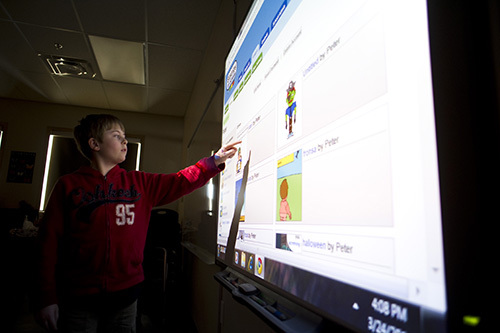
The latest Pew research once again indicates that the use of tablets, téléphones mobiles, internet sources and social media platforms such as Facebook and Twitter continues to infiltrate classrooms in the US rapidly. Are you seeing the same trend in Alberta classrooms? To what extent is the use of these tools part of your curriculum? Is there an age below which you believe these tools are not appropriate in classrooms?
Alberta is seeing these same trends. We would say that technology is being used appropriately across all grades because in Alberta we have balanced curriculum that includes a balance of learning activities, with technology and other resources, as well as interaction and daily physical activity.
Alberta Education est actuellement engagé dans une communauté de recherche de la pratique qui enquête sur les utilisations possibles de la technologie, y compris les tablettes, de la maternelle à année 4 les salles de classe. One of the focuses is to explore what applications of technology are most effective and appropriate for various age groups.
There are several school authorities in Alberta that have invested in class or school sets or portable carts of tablet or laptop devices, comme Chromebooks, et l'intérêt pour la technologie éducative continue d'augmenter dans tout le système d'éducation. Alberta Education travaille actuellement pour finaliser un cadre de politique sur l'apprentissage et de la technologie mise à jour d'établir une vision commune pour le rôle de la technologie dans l'éducation, in alignment with L'éducation inspirante. This vision will help decision makers at all levels take appropriate actions that will complement each other and yield maximum benefit for students.

All photos are courtesy of Ministry of Education Alberta.
Pour plus d'articles dans la Got Tech? série: La recherche globale pour l'éducation: Got Tech? – Finlande, La recherche globale pour l'éducation: Got Tech? – Australie, La recherche globale pour l'éducation: Got Tech? – Singapour, La recherche globale pour l'éducation: Got Tech?- Etats-Unis, La recherche globale pour l'éducation: Got Tech? Écoles IB dans un monde virtuel, La recherche globale pour l'éducation: Got Tech? – Argentine
Dans La Recherche globale pour l'éducation, joindre à moi et leaders d'opinion de renommée mondiale dont Sir Michael Barber (Royaume-Uni), Dr. Michael Bloquer (États-Unis), Dr. Leon Botstein (États-Unis), Professeur Clay Christensen (États-Unis), Dr. Linda Darling-Hammond (États-Unis), Dr. Madhav Chavan (Inde), Le professeur Michael Fullan (Canada), Professeur Howard Gardner (États-Unis), Professeur Andy Hargreaves (États-Unis), Professeur Yvonne Hellman (Pays-Bas), Professeur Kristin Helstad (Norvège), Jean Hendrickson (États-Unis), Professeur Rose Hipkins (Nouvelle-Zélande), Professeur Cornelia Hoogland (Canada), Honorable Jeff Johnson (Canada), Mme. Chantal Kaufmann (Belgique), Dr. Eija Kauppinen (Finlande), Le secrétaire d'Etat Tapio Kosunen (Finlande), Professor Dominique Lafontaine (Belgique), Professeur Hugh Lauder (Royaume-Uni), Professeur Ben Levin (Canada), Seigneur Ken Macdonald (Royaume-Uni), Professeur Barry McGaw (Australie), Shiv Nadar (Inde), Professeur R. Natarajan (Inde), Dr. PAK NG (Singapour), Dr. Denise Pape (États-Unis), Sridhar Rajagopalan (Inde), Dr. Diane Ravitch (États-Unis), Richard Wilson Riley (États-Unis), Sir Ken Robinson (Royaume-Uni), Professeur Pasi Sahlberg (Finlande), Professeur Manabu Sato (Japon), Andreas Schleicher (PISA, OCDE), Dr. Anthony Seldon (Royaume-Uni), Dr. David Shaffer (États-Unis), Dr. Kirsten immersive, (Norvège), Chancelier Stephen Spahn (États-Unis), Yves Thézé (Lycee Francais U.S.), Professeur Charles Ungerleider (Canada), Professeur Tony Wagner (États-Unis), Sir David Watson (Royaume-Uni), Professeur Dylan Wiliam (Royaume-Uni), Dr. Mark Wormald (Royaume-Uni), Professeur Theo Wubbels (Pays-Bas), Professeur Michael Young (Royaume-Uni), et le professeur Zhang Minxuan (Chine) alors qu'ils explorent les grandes questions d'éducation de l'image que toutes les nations doivent faire face aujourd'hui. La recherche globale pour l'éducation communautaire page
C. M. Rubin est l'auteur de deux séries en ligne largement lecture pour lequel elle a reçu une 2011 Upton Sinclair prix, “La recherche globale pour l'éducation” et “Comment allons-nous savoir?” Elle est également l'auteur de trois livres à succès, Y compris The Real Alice au pays des merveilles.


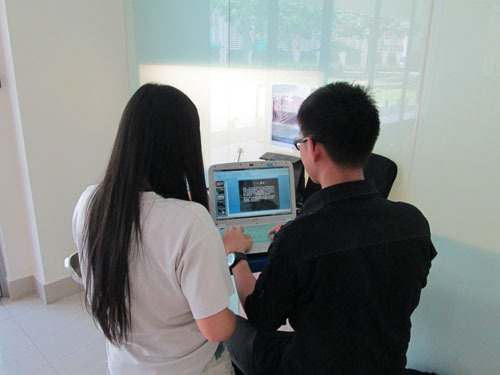
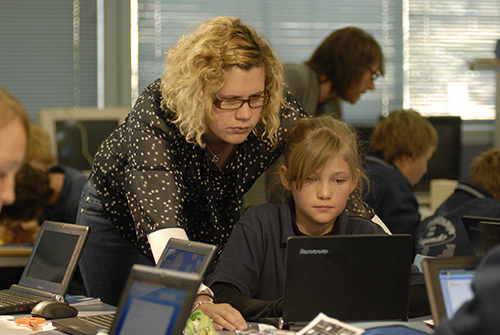
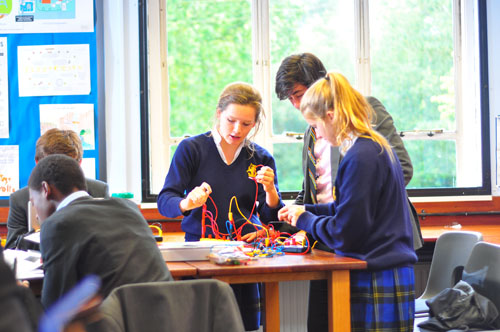
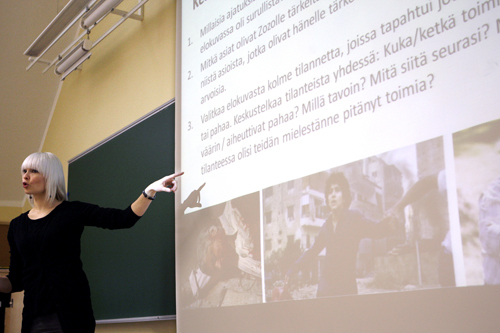
Commentaires récents